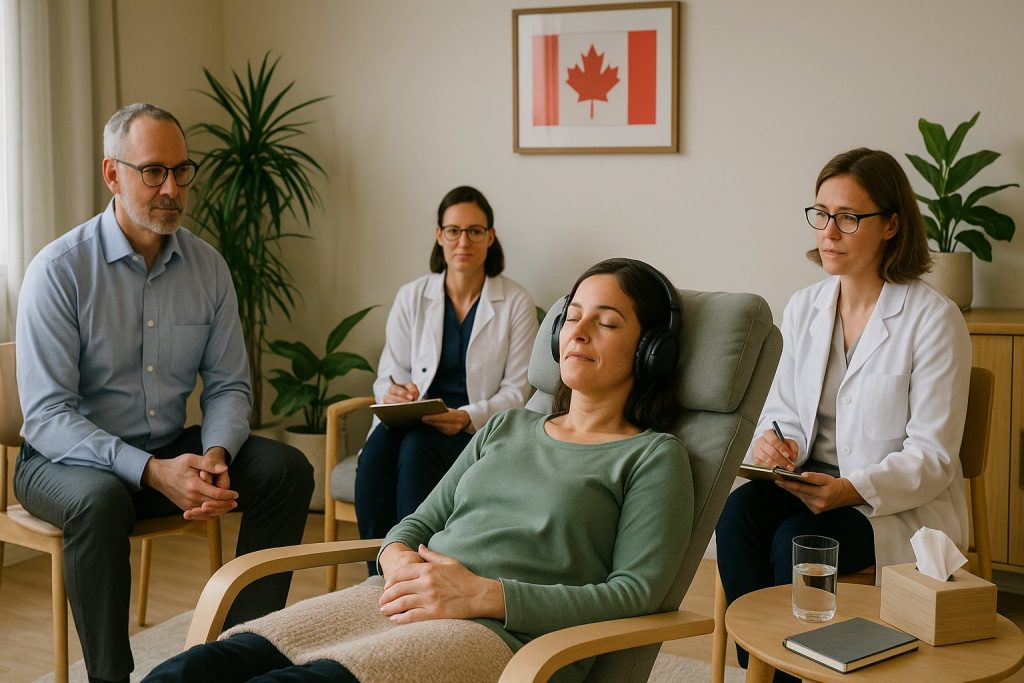MDMA-assisted therapy for PTSD: paving the way for psilocybin medicine

The world of mental health treatment is shifting. For decades, people living with trauma, depression, and anxiety had limited options, often daily medications with mixed results. Now, research into psychedelic-assisted therapy is sparking a new path forward. One of the most talked-about breakthroughs is MDMA-assisted therapy for PTSD, a treatment that’s showing extraordinary results in clinical trials. And here’s the exciting part: the progress with MDMA may open the door for psilocybin-assisted therapy, bringing “magic mushrooms” out of the shadows and into the medical mainstream.
At Path Supply, we’re passionate about sharing how science-backed psychedelics are reshaping wellness. Let’s explore how MDMA’s journey is carving a trail that psilocybin is ready to follow

Why MDMA therapy is making headlines
For over 30 years, the Multidisciplinary Association for Psychedelic Studies (MAPS) has been studying MDMA in combination with therapy for post-traumatic stress disorder. Their Phase 3 clinical trials were a turning point. In one study, nearly two-thirds of participants no longer met the criteria for PTSD after just three MDMA-assisted sessions with therapy, compared to about one-third in the placebo group. That’s an extraordinary result in a condition where many people don’t respond to standard treatments.
The therapy model looks different from what most of us think of as “medication.” Instead of a pill every day, patients undergo careful preparation, participate in guided therapy sessions while under the effects of MDMA, and then return for integration sessions. MDMA reduces fear responses and boosts empathy, helping people process traumatic experiences in ways that traditional talk therapy alone often cannot.
Although the U.S. Food and Drug Administration (FDA) requested additional data in 2024, optimism remains strong. Many experts expect MDMA to become the first psychedelic medicine approved in North America within the next few years.
The ripple effect: what MDMA means for psilocybin
So where do mushrooms come in? The progress of MDMA-assisted therapy for PTSD has created a scientific and cultural ripple effect. If MDMA (once considered purely a “party drug”) can move into clinics and win the trust of regulators, then psilocybin has a clearer path to follow.
Already, psilocybin-assisted therapy is showing promise. Clinical trials published in the New England Journal of Medicine found that a single psilocybin session led to rapid and lasting improvements in treatment-resistant depression. In fact, some participants experienced relief within 24 hours, with effects lasting weeks or even months.
The parallels are striking: both therapies combine a psychedelic substance with structured psychotherapy. Both offer more than symptom management—they aim for breakthrough experiences that help people reframe their struggles and move forward. And both are rewriting the story of what mental health care can look like.

Canada’s cautious but growing embrace
While MDMA and psilocybin remain controlled substances in Canada, there’s movement at the edges. Through Health Canada’s Special Access Program, physicians can request psilocybin or MDMA for patients with serious conditions when conventional treatments haven’t worked. Since 2022, hundreds of Canadians have legally accessed psilocybin therapy through this program, often for end-of-life anxiety, depression, or cluster headaches.
At the same time, Canadian researchers are leading global studies on psilocybin for depression, alcohol use disorder, and palliative care. As public opinion continues to shift, and with our neighbours to the south pushing forward, it’s hard to imagine Canada won’t expand access once approvals happen abroad.
Why this matters for the future of mental health
We’re standing at the edge of a new era in psychiatry. Instead of endless prescriptions, people may soon have access to psychedelic therapies that provide lasting change after just a few carefully guided sessions. For veterans with PTSD, for those with treatment-resistant depression, and for families seeking hope, these therapies could be transformative.
We believe that as research continues, the line between clinical and wellness use will blur, empowering people to explore mushrooms responsibly while science catches up.

Choose your path, stay informed
The road from clinical trials to everyday access is rarely straight. MDMA has shown what’s possible, and psilocybin is close behind. As research grows, and with regulators in Canada and beyond paying attention, we could soon see mushrooms move from the grey market into the clinic—bringing new hope for mental health care.
Until then, curiosity and caution go hand in hand. Whether you’re exploring functional mushrooms for daily focus and immune support, or learning about the science of psychedelics, education is the first step.
At Path Supply, we’re here to guide you to help you make mindful choices. If you’d like to learn more, check out our functional mushroom capsules or read our blogs on microdosing and mindfulness.